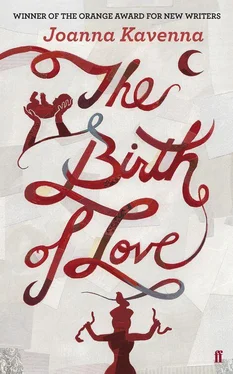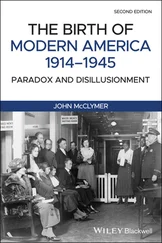*
It must or might be, thinks Michael, that — but now the train is pulling into Charing Cross and the carriage empties and fills again, and Michael is knocked on the back and turns his head round, though he is not angry at all. He just wants to see the person who has collided with him, and it is a woman wearing red, looking urgent and troubled as she leaves the train. She is hurrying down the platform, and now the train moves out of the station, and he can no longer see her.
*
Robert von Lucius walks through the streets of Vienna, his head bowed. The streets are crowded with people, and he hears the clatter of horses’ hooves on the cobbles. Carriages pass him, in a continuous line. He steps aside to avoid a man, and the man nods his thanks. The shops are opening, and the market sellers are setting up their stalls in the square. Von Lucius is hurrying, and the crowds merely irritate him. They are an obstruction, so many people standing between him and the asylum on Lazarettgasse. Between anticipation and action. Though what he will do when he arrives, he is not sure. Much depends on the mood of Professor Semmelweis, on whether he is lucid or raging. Now the cathedral clock chimes above him — he checks his own clock against it — and it is 8.30 a.m.
*
‘Brigid, I am Dr Gupta,’ says one doctor, holding out his hand.
‘I am Dr Witoszeck,’ says the other, younger and less self-assured.
‘We are going to examine you, if that is all right?’ says Dr Gupta, though Brigid can hardly refuse. She says it is all right. They say, ‘We are now beginning the examination,’ and they push their hands inside her, one after the other, and then they jot down notes together.
They say things she cannot understand. They speak quickly, using medical terms. Then Dr Gupta addresses her. He sits down — on the chair Patrick has vacated for him — and says, ‘The labour has progressed quite some way. You have done very well. However, the baby’s head is stuck. It is the wrong way round and so this is making things very difficult for you. I think this is quite a large baby, larger than your first baby. This is why your contractions have been so unproductive, I suspect, because of the size and now the awkward position of the baby.’
‘What can I do?’ she says.
‘We will see if some pushing turns the head. If that doesn’t work then we will consider the other options. I’ll leave you with the midwife.’
*
So her baby is stubbornly fixed. They are sending stronger waves of chemicals into her body, making the contractions more forceful even than before. Brigid is positioned; her numbed legs are moved. Upturned, stranded on her back, Brigid sees that her legs have been opened wide, and she becomes aware that she is naked below the waist. She observes this fact, though she no longer cares. Deprived of feeling, her body does not seem to be her own. The midwife says, ‘An hour to push. Then the doctor will come back again.’
*
Outside, the hum of traffic. There are boats moving on the shining river. And the midwife says, ‘Now! Push!’
*
With deadened nerves, Brigid aims to push. Her muscles are asleep, she thinks. The epidural has numbed her body and somehow it also seems to have detached her altogether from her surroundings. From what is really happening to her. She is obeying the midwife, but automatically, as if it doesn’t matter any more. And the midwife says, ‘That’s it! Keep pushing!’ and Patrick is there too, saying, ‘Push! Brigid, keep going!’
*
She grits her teeth, only an hour she thinks, from some reserve she must produce a final burst of energy — and she thinks she is pushing though her body has been silenced and cannot tell her what it is doing at all. She hears a deep guttural growl, like an animal, and she knows, though it seems improbable enough, that this sound is coming from her. In her desperation, she is growling like a beast.
*
And Patrick says, ‘Go on Brigid — that’s great. Well done! Keep pushing!’
*
‘You should rest for a moment,’ says the midwife, and the growl stops. Brigid breathes, tries to understand her body; she listens but all the shrillness has been muffled. Patrick kisses her and says, ‘You’re doing really well.’
She is given a drink of water, tended to briskly, her brow is wiped, and then the midwife holds up the watch again and says, ‘Now! Push again!’
*
Within her, Brigid feels the suppressed force of a contraction, still tearing her apart, but surreptitiously, so what she registers is something like an aftershock, not the real force and fury at all. She has her eyes on the ceiling, a great lamp is shining down on her, she is the illuminated centre of the room, and so she grimaces and makes grunting noises, as if that will help. She grunts to compensate for the muteness of her body, these silenced muscles she has been dutifully honing throughout the months of her pregnancy, with special yoga exercises. She has been training for the marathon of the birth, and now she is lying on her back, with Patrick and the midwife peering doubtfully inside her. And because there is nothing else she can do, Brigid growls like a beast and bares her teeth, and she hears Patrick saying, ‘Come on Brigid, come on.’
*
She is pinioned by drugs. The midwife’s hand is upon her knee, though Brigid can hardly feel it. And in the other hand she holds a watch.
‘OK, now off we go again,’ says the midwife. Brightly, as if it is a race.
*
The true horror, the horror I am not prepared for though I have already seen it once, is still to come, thinks Patrick, looking over at his wife, her face contorted, her jaw wide open in a snarl. He thinks of all the effort she has gone to, the months of pregnancy and hauling her belly around, and now this. He wants to put his hands on her, to comfort her, but she is engrossed in her state, and he holds back. Later blood will flow and then there will be the ruined and deflated belly, wrinkled as if aged prematurely, a flap of baggy skin. Patrick remembers this melancholy voided belly, which he loved because it had housed his son, because each silvery stretch mark reminded him of the months of suspense, the eventual birth. And then the gradual recovery, the body slowly regaining shape and definition, though never quite the same as before. But before that, they must pass through the terrifying beauty of the birth — the gory sundering. And now he says, because it is all he can do, and he is otherwise ineffective, redundant otherwise, ‘Go on Brigid, push!’
*
Brigid thinks how impossible this is, how she fails to understand it, how her body is — even the second time, when they lied and told her things would be easy — refusing to release the child. She had never really considered that this birth might be worse than the first. In the midst of it, even as she strains and snarls, Brigid sees what is happening to her and knows it is worse than last time.
*
And though she can hardly imagine it, her thoughts turn to the child within her, contained in some bony unyielding place, its head trapped, and so she growls and wills her deadened muscles to work.
‘Go on Brigid!’ says Patrick. Like a nervous cheerleader. ‘Go on, you can do it!’
*
She screams in her effort, a thin shrill scream, and Patrick says, ‘Good girl, you’re doing so well,’ trying to make his voice sound warm and calm, and then the midwife says, ‘OK, and relax now.’ Brigid lets her head fall back, and she stares at the ceiling.
*
It hasn’t worked. The midwife examines her and makes the pronouncement. None of it — the grunting and straining and even the final cry — has moved the baby.
*
‘Unfortunately, we could be doing this for hours,’ the midwife is saying. The allotted hour has elapsed. It is 9.30 a.m.and the baby has not arrived.
Читать дальше












